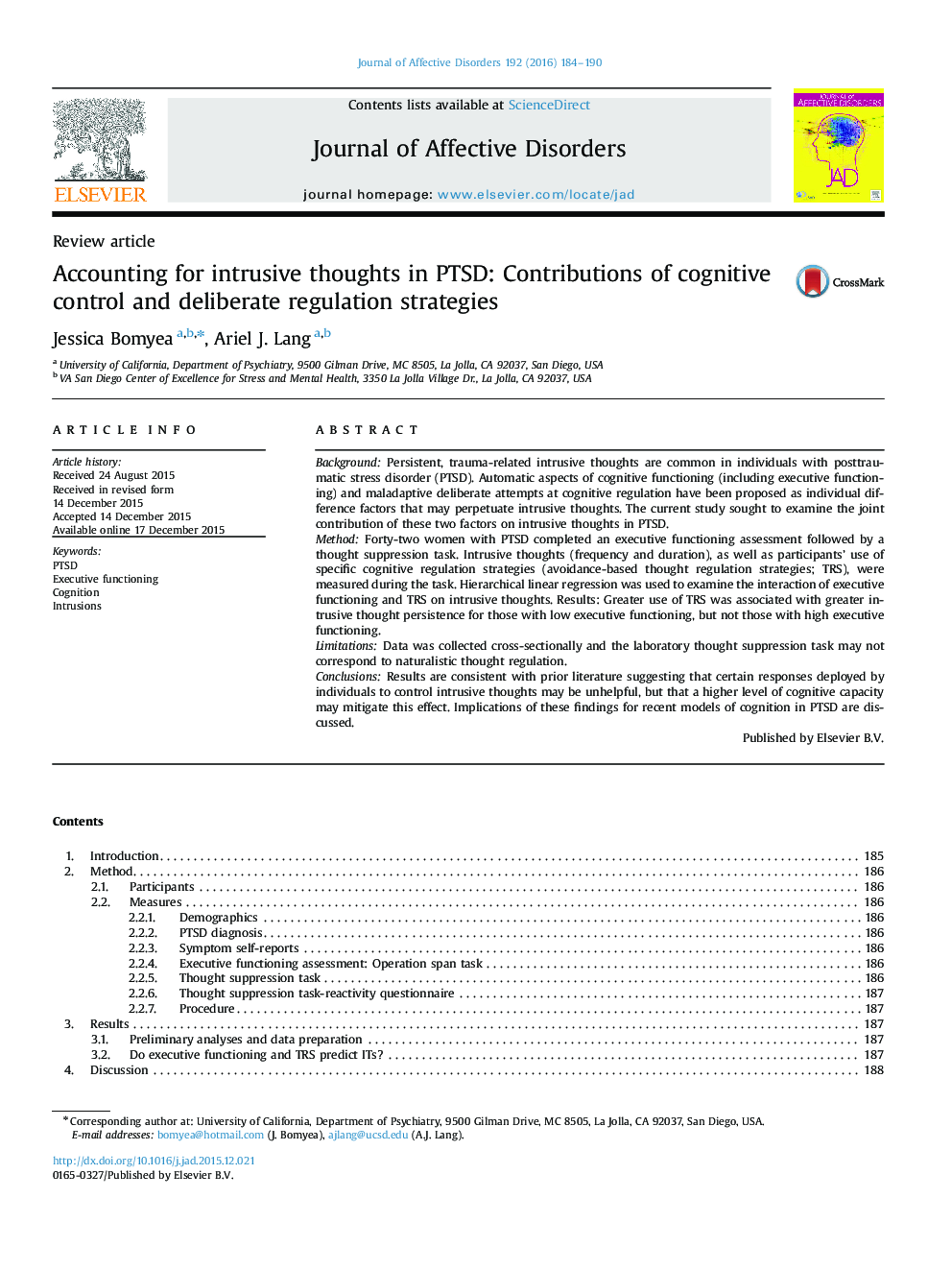| کد مقاله | کد نشریه | سال انتشار | مقاله انگلیسی | نسخه تمام متن |
|---|---|---|---|---|
| 6230628 | 1608133 | 2016 | 7 صفحه PDF | دانلود رایگان |

- Maladaptive thought regulation strategies are implicated in intrusive thoughts (ITs).
- This relationship may depend on availability of cognitive resources.
- The effect of these factors on ITs during thought monitoring was measured in PTSD.
- Low cognitive resources combined with poor regulation strategies produced more ITs.
BackgroundPersistent, trauma-related intrusive thoughts are common in individuals with posttraumatic stress disorder (PTSD). Automatic aspects of cognitive functioning (including executive functioning) and maladaptive deliberate attempts at cognitive regulation have been proposed as individual difference factors that may perpetuate intrusive thoughts. The current study sought to examine the joint contribution of these two factors on intrusive thoughts in PTSD.MethodForty-two women with PTSD completed an executive functioning assessment followed by a thought suppression task. Intrusive thoughts (frequency and duration), as well as participants' use of specific cognitive regulation strategies (avoidance-based thought regulation strategies; TRS), were measured during the task. Hierarchical linear regression was used to examine the interaction of executive functioning and TRS on intrusive thoughts. Results: Greater use of TRS was associated with greater intrusive thought persistence for those with low executive functioning, but not those with high executive functioning.LimitationsData was collected cross-sectionally and the laboratory thought suppression task may not correspond to naturalistic thought regulation.ConclusionsResults are consistent with prior literature suggesting that certain responses deployed by individuals to control intrusive thoughts may be unhelpful, but that a higher level of cognitive capacity may mitigate this effect. Implications of these findings for recent models of cognition in PTSD are discussed.
Journal: Journal of Affective Disorders - Volume 192, 1 March 2016, Pages 184-190